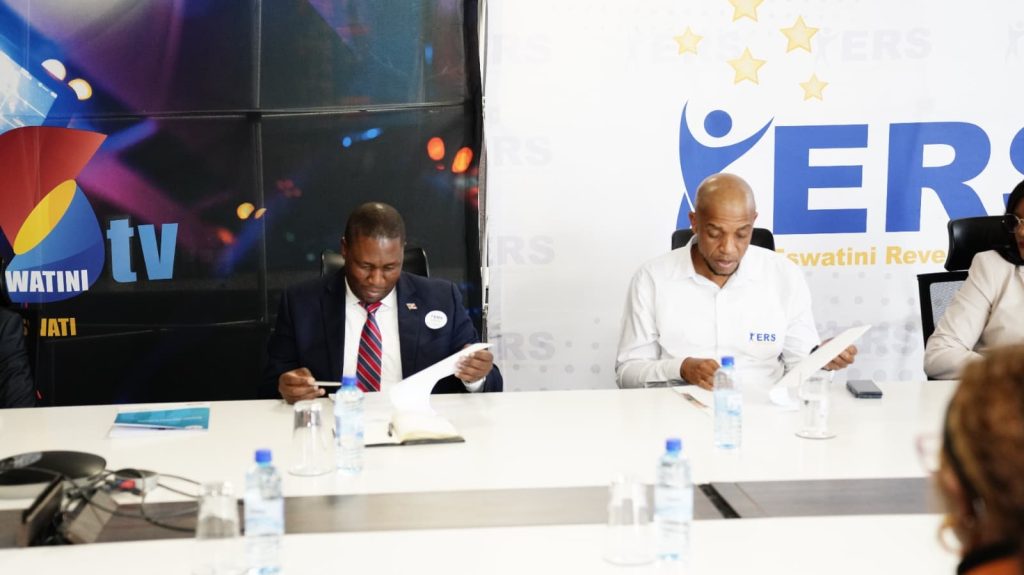
The Eswatini Revenue Service (ERS) and the Eswatini Television Authority (ESTVA) have signed a transformative Memorandum of Understanding (MoU) to modernise Eswatini’s border-control systems and strengthen broadcasting licence compliance.
The agreement represents a strategic alignment between the two state institutions, linking ERS’s advanced border-management systems with ESTVA’s broadcasting-sector. The new collaboration is expected to drive more efficient trade processes, ensure compliance with TV-device regulations, and increase revenue collection.
Under the MoU, television-signal devices imported into Eswatini will now undergo enhanced regulatory scrutiny. ERS Customs officers will apply data-driven risk assessment filters alongside physical inspections to identify irregularities, while ESTVA will verify whether the imports meet approved technical standards and authorised quantities.
Importers and retailers dealing in television equipment will now be required to apply for digital permits through ERS’s customs-clearance system. This integrated online workflow allows real-time data sharing between the two agencies, ensuring that permit quotas are not exceeded and that the declared goods align with the actual items brought into the country.
ERS Commissioner General, Brightwell Nkambule, hailed the partnership as a practical solution aligned with the National Trade Facilitation Committee (NTFC) strategy.
“This partnership is a practical enabler of the NTFC’s strategy to make importing and exporting goods more efficient,” he said. “When a retailer submits a permit request online, automated risk filters ensure the application stays within quota and that the product codes match the shipment. That precision reduces delays, protects honest traders and, ultimately, fuels economic growth.”
ESTVA Chief Executive Officer, Mlamuli Dlamini, emphasised the collaboration’s impact on TV licence compliance and financial sustainability.
“By integrating our licence database with ERS border controls, we are levelling the playing field in TV-licence compliance,” Dlamini stated. “This partnership will help ESTVA move the needle on licence payments, reducing the burden on Government and taxpayers by lowering the subvention we receive and boosting the revenue we generate ourselves.”
Adding further detail on the implementation, ESTVA’s Head of Legal, Luke Shongwe, outlined the phased approach of the initiative.
“This collaboration will go a long way toward easing compliance. Phase 1 focuses on monitoring the importation, exportation, and transit of television devices entering the country. Phase 2 will streamline licence renewals for existing owners,” he said.
To ensure smooth implementation and public compliance, ERS and ESTVA will roll out an intensive public-awareness campaign to guide importers, retailers and consumers on the new procedures and how to stay compliant.
